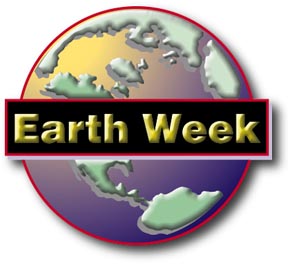 Another year has passed since our last Earth Day and Environment Week at LCC. Unfortunately, on the global scale it’s easy to feel gloomy about the general state of the environment. Climate change is a huge topic, and while politicians around the world debate the issues—as they did at the Copenhagen Conference last December and only implement minimal change—we all ask, what is really being achieved?
Another year has passed since our last Earth Day and Environment Week at LCC. Unfortunately, on the global scale it’s easy to feel gloomy about the general state of the environment. Climate change is a huge topic, and while politicians around the world debate the issues—as they did at the Copenhagen Conference last December and only implement minimal change—we all ask, what is really being achieved?
I believe that at the grassroots level, people are more aware that the environment matters. Individuals, not governments are making a difference. People are more responsible and accountable, not because they have to, but because they want to.
How about within our own school community? Have we made progress by reducing our footprint and becoming greener? Are we building a more sustainable school?
I am proud that we have made a number of advances. Yet, I will be the first to assert that we have yet to develop broad universal “buy-in” and consciousness. For too many people in our school community, environmental changes remain only skin deep. More effort is still required to embed sustainable practices into our daily lives.
We have made achievements and some notable progress. Consider the following:
We have made the environment and sustainability one of the seven pillars of our school’s current strategic plan.
We have significantly reduced our energy consumption at the school in recent years thanks to some initiatives we implemented three years ago.
Under the leadership of Ms. Scattolin and Mr. Olive, the LCC Green Team and a host of students have made notable changes including implementing a composting program.
Our Sustainability Committee, made up of student, faculty, and Board representatives meet regularly outside of class time to consider new directions for our school.
We have developed a Sustainability Mission Statement that will soon be endorsed by our Board and will define school practices well into the future.
Our Board has made a commitment to build a sustainable green “Learning Commons” and we are aiming to construct a gold LEED-standard building.
The environmental curriculum has been enhanced for students and interesting activities are available beyond the classroom.
Creative and engaging “environmental video minutes” have been presented at school assemblies.
Our focus has been on initiative and change, not window-dressing.
Clearly, LCC has made an open commitment to become a greener and sustainable school. The rest is really up to our students. At assembly this week, I was direct and asked students from grades 7 to 11 if they cared. Is environmental progress something they see as important or do they see it as someone else’s responsibility? Will more leaders emerge from our student body, or will students simply accept bad habits that we know we cannot sustain? What is our students’ vision of environmental management, as it will likely be the defining issue of their adult lives?
These are difficult questions. I hope we address them head on in the coming year. In the interim, remember that this is Earth Week and the importance of celebrating all the elements that make up our very fine planet. The other evening I left school following a short, light rain shower that had refreshed our now green fields. The smell of the dirt and the grass was fantastic; a reminder of how quickly the natural world adapts from a barren, Montreal snow-covered winter. Miraculously, our fields develop into the beautiful natural green space our school community enjoys from spring to fall.
This week, I hope you will participate in some of our Earth Week activities. I also hope you will find time to connect with nature and remember how blessed we are in Canada with so much open space and exceptional natural beauty. We all have to accept responsibility for stewarding what native Canadians have always called “Mother Earth.” Let’s all care for her with passion and a true sense of responsibility. —Chris Shannon, Headmaster
The Corvée du Mont-Royal is an annual event put on by Les Amis de la montagne where groups of people help beautify the mountain by picking-up garbage and planting new trees. On May 2nd, a few students from our Green Team got involved.

